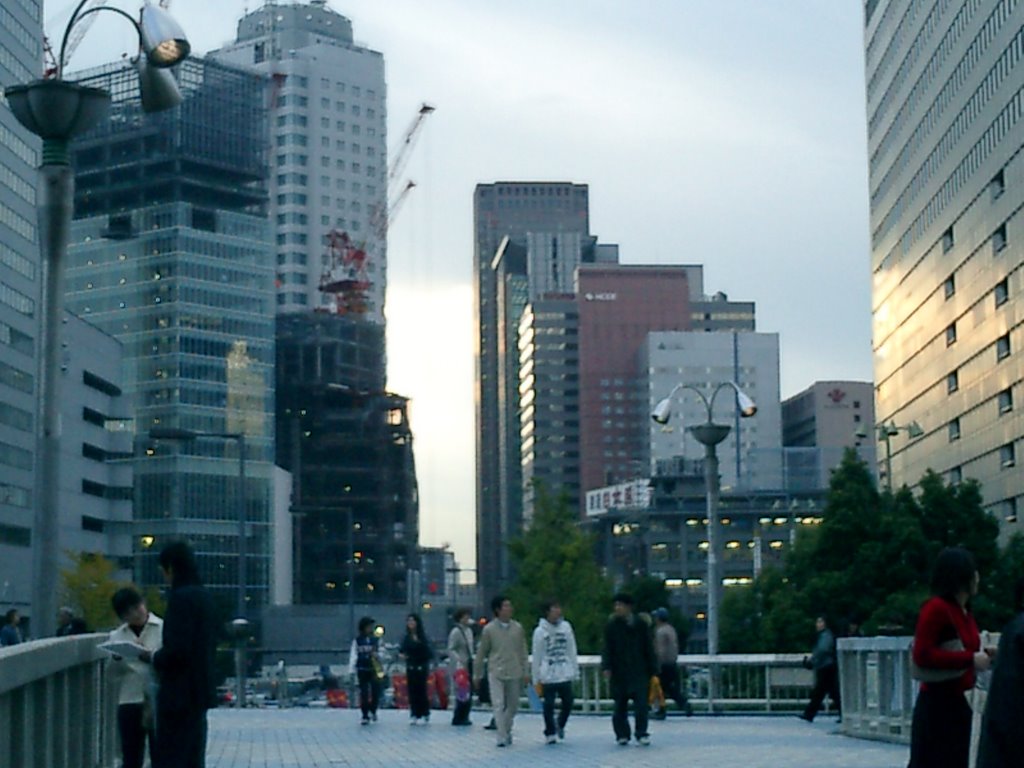Manga bringing cultural understanding to the world
I had the TV on tonight and an English program with the host Pak kun came on, broadcasting a visit from a Japanese celebrity and a special on the popularity of manga in the United States and abroad. Pak kun is gaijin talent meaning he has obtained the trust of the Japanese public-speaking the language and thinking like a Japanese person-in other words he has become a tame gaijin. Tonight was another reason I have come to hate these gaijin TV personalities.
The story tonight was on Manga's popularity in the states, and they interviewed some Otaku from San Fransisco. They were the geekiest people I have ever seen-dressed like cartoon characters with greasy hair. Seriously a shower wouldn't hurt from time to time.
Japan is Japan, America is America. It's not going to change. While the Japanese people can take Pak kun's word that Manga is bringing our two countries together, I have another point of view, one that claims the opposite. Having taken two years of formal Japanese in college I can say I've come across exactly the types of people I saw being interviewed for this program. These are the types of people I cannot stand. They claim to have an interest in Japanese culture which was spawned by manga and anime and they expect people to take them seriously. I know that comics and cartoons are very popular here, but Japanese culture isn't a bunch of big blond haired men with spiky hair and petite submissive busty women. Japanese culture is not experienced through reading comic books as entertainment.
I have no academic proof to back this up, but I've seen enough people in my lifetime to say confidently that I am right. In college 1st and 2nd year Japanese classes are impossible to get into. It is one of the most popular foreign languages for undergraduates to study; however, by year 3 and 4 there are merely 2 classes for the entire university (my 4th year class consisted of less than 10 people one term). Why is this? Examining the types of people who take years 1 and 2, many fall into the group that likes manga and anime but wants to be able to understand them without translation. They take a year or two of Japanese and realize it's difficult and quit because it's not worth the work. I agree, I wouldn't have put in as much time as I had in getting to where I'm at with the mere goal of reading comic books. By my 4th year class there were only a few mangaphiles; however, they had other reasons to study Japanese than their counterparts. These people I can tolerate.
Back to the television show...Since I have had experiences with American Otaku this television show really got to me tonight. Most Japanese people don't have problems with Manga and Anime but they think Otaku are weird-just like they do in the states. What the Japanese people don't realize is just how weird these people are in the states. These people have horrible hygiene, don't have social lives, "boff", and believe that fictional cartoons and comic books give them an accurate look at Japan. So Pak Kun, exactly how are they practicing multiculturalism?
If anything they portray a fictional aspect to the country. It sounds great to think that comic books and cartoons will help us understand our differences but try giving an American diplomat an issue of "Gundam" or "Sailor Moon" and lets see how much closer our two nations' understandings get.
This was a slap in my face. I have put in a lot of time learning this language(4 years of high school, 2 years of college, and I'm currently in my second year living here). I get kind of pissed off when the sincere effort that I have made in trying to bridge cultural gaps is paralleled to a bunch of nerds jacking off to cartoons.


0 Comments:
Post a Comment
<< Home